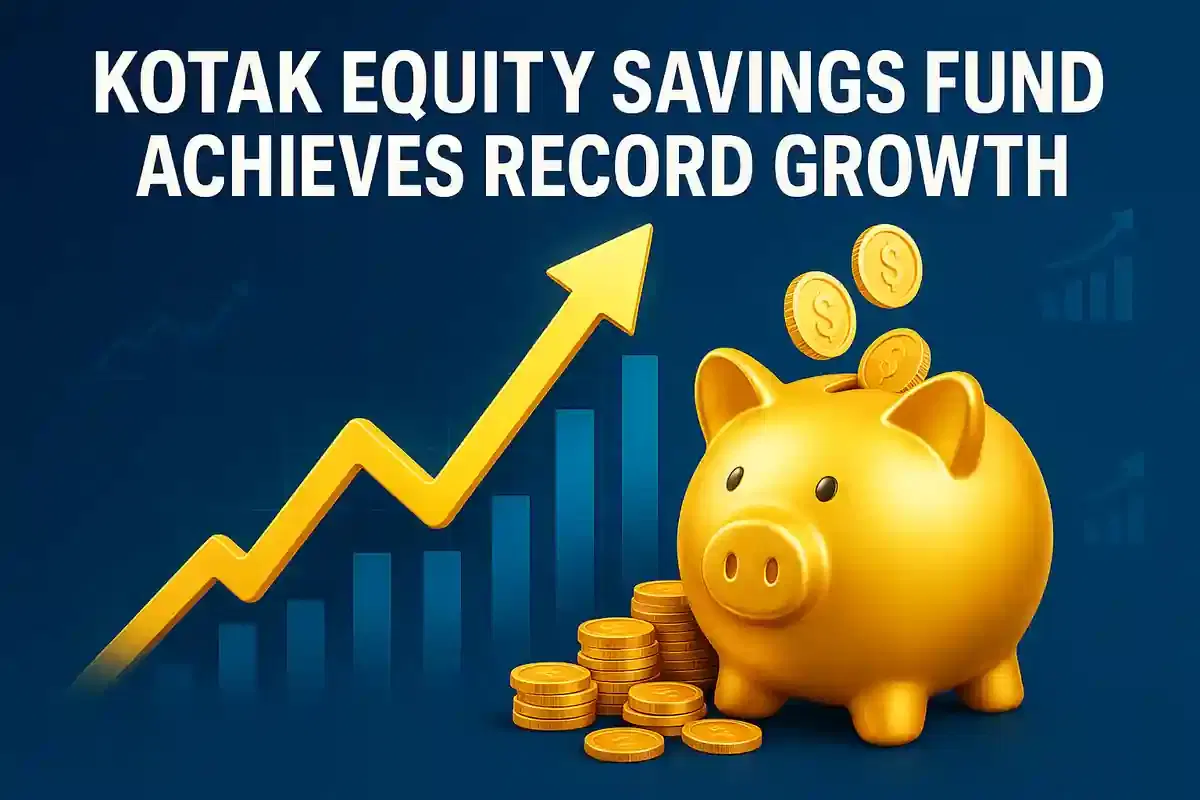Kotak Equity Savings Fund Triples Investor Wealth Over 11 Years, Crosses ₹8,400 Crore AUM
Mutual Funds
|
29th October 2025, 10:53 AM

▶
Stocks Mentioned :
Short Description :
Detailed Coverage :
The Kotak Equity Savings Fund has demonstrated remarkable performance since its inception in October 2014, successfully tripling investor wealth over an 11-year period. As of October 2025, its Assets Under Management (AUM) have grown to over ₹8,400 crore. The fund has delivered a Compounded Annual Growth Rate (CAGR) of 10.3% since its launch, outperforming its benchmark, the Nifty Equity Savings Index TRI, which returned 9.09% during the same timeframe.
For investors, a ₹10,000 lump sum investment made at the fund's launch would now be worth approximately ₹29,659. Furthermore, a Systematic Investment Plan (SIP) of ₹10,000 per month since inception would have grown a total investment of ₹13.3 lakh to ₹25.1 lakh, yielding an impressive CAGR of 11.05%.
The fund operates as a hybrid scheme, strategically investing in arbitrage opportunities within the cash and derivatives markets while maintaining a moderate allocation to equities. This approach aims to balance income generation with long-term capital appreciation for its investors.
Top holdings in the fund's portfolio as per the latest disclosure include Maruti Suzuki India Ltd (3.67%), Hero MotoCorp Ltd (3.24%), State Bank of India (2.5%), Radico Khaitan Ltd (1.97%), Poonawalla Fincorp Ltd (1.85%), Bharti Airtel Ltd (1.68%), PNB Housing Finance Ltd (1.68%), and Indus Towers Ltd (1.65%). The scheme is managed by Devender Singhal and Abhishek Bisen.
Key risk metrics for the fund include a Sharpe Ratio of 1.02, indicating good risk-adjusted returns, a standard deviation of 5.08%, reflecting its volatility, and a portfolio turnover ratio of 448%, suggesting active management.
Impact: This performance is highly relevant for Indian investors seeking balanced investment options. Such strong historical returns can attract new investments into the fund and the broader hybrid mutual fund category, potentially influencing market sentiment and fund flows. The fund's success sets a benchmark for similar schemes. Rating: 7/10
Difficult Terms: Assets Under Management (AUM): The total market value of all financial assets that a financial institution, such as a mutual fund, manages on behalf of its clients. Compounded Annual Growth Rate (CAGR): The average annual rate of return of an investment over a specified period of time greater than one year. Hybrid Scheme: A type of mutual fund that invests in a mix of asset classes, such as equities and debt, or equities and arbitrage opportunities, to balance risk and return. Arbitrage: A trading strategy that involves exploiting price differences of the same asset in different markets or forms to make a profit. Sharpe Ratio: A measure of risk-adjusted return. It indicates how much excess return is received for the volatility of an investment. Standard Deviation: A statistical measure that indicates how spread out the data are from their average value; in finance, it measures the volatility of an investment's returns. Portfolio Turnover Ratio: A measure of how frequently a fund trades its securities. A higher ratio indicates more frequent trading.